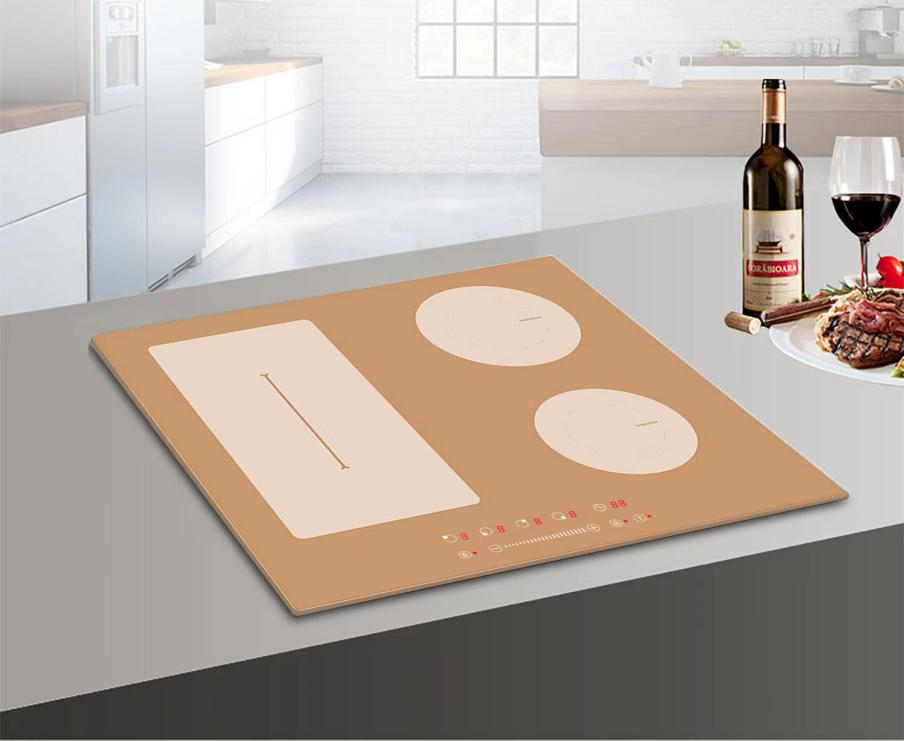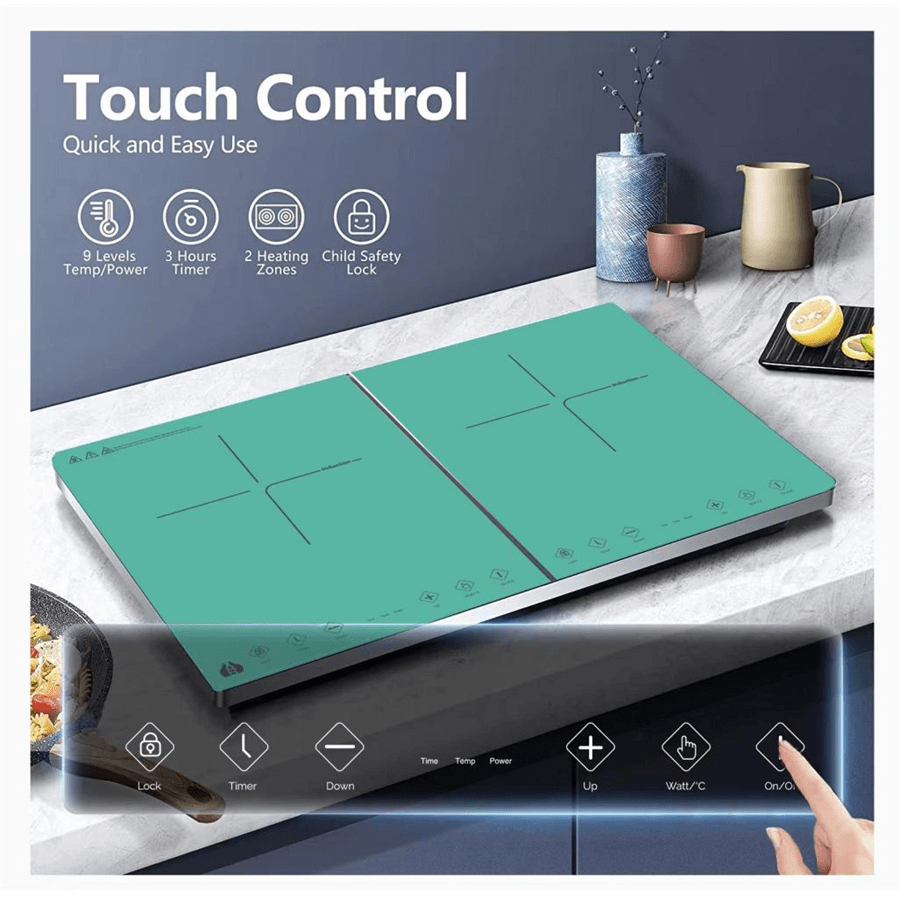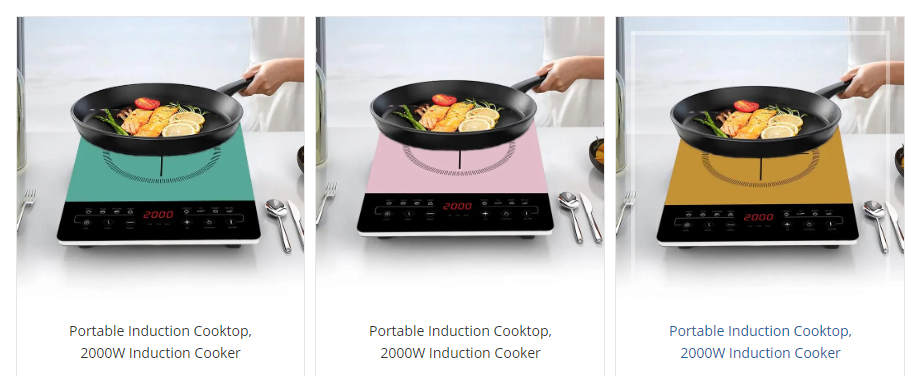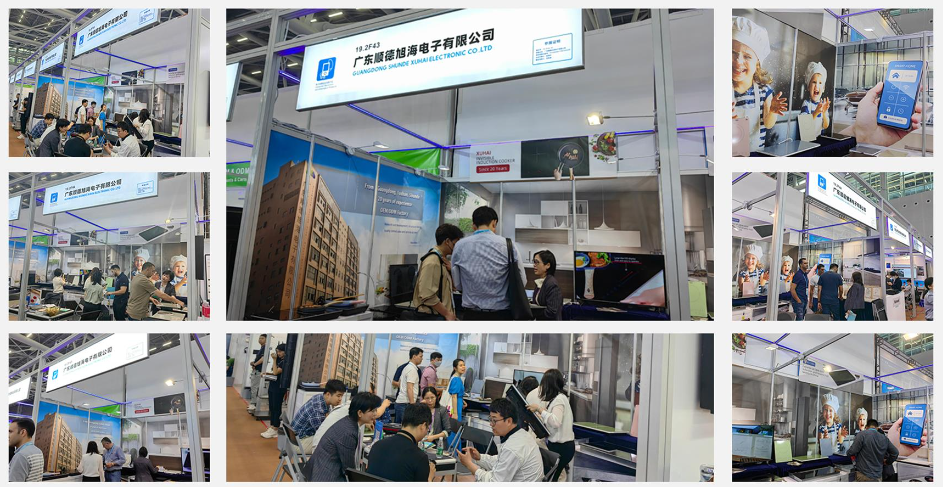Induction cooking has been a steadily-growing kitchen trend for years now, and in some places it's far more than a trend. Why the popularity? Induction cooktops are masters of the quick change. They're gentle enough to melt butter and chocolate, but powerful enough to bring 1L of water to a boil in under five minutes.
Plus, with growing conversations about banning gas stoves due to safety and environmental concerns, induction is becoming an even more appealing alternative. Growing consumer awareness is helping induction cooktops and ranges with this superior cooking technology gain a foothold.

Although they resemble electric smooth-top burners, induction cooktops don't have burners underneath the cooking surface. Induction cooking uses electromagnetic energy to heat pots and pans directly. In comparison, gas and electric cooktops heat indirectly, using a burner or heating element, and passing radiant energy onto your food.
As you can imagine, it's far more efficient to heat cookware directly instead of indirectly. Induction is able to deliver roughly 80% to 90% of its electromagnetic energy to the food in the pan. Compare that to gas, which converts a mere 38% of its energy, and electric, which can only manage roughly 70%.
That means induction cooktops not only heat up much faster, but their temperature controls are far more precise. "It's an instantaneous reaction in the cookware," says Robert McKechnie, product development manager at Electrolux. "With radiant, you don't get that."
Induction cooktops can achieve a wide range of temperatures, and they take far less time to boil than their electric or gas counterparts. In addition, the cooktop surface stays cool, so you don't have to worry about burning your hand.
It's even possible to put a paper towel between a spattering frying pan and an induction burner, though you’d want to keep an eye on that. Remember, the cooktop doesn't get hot, but the pan does.
On almost all counts, induction is faster, safer, cleaner, and more efficient than either gas or electric. And yes, we've done exhaustive oven testing in our labs to support that claim.

At Reviewed, we've rigorously tested the majority of top-selling cooktops and ranges on the market—including many induction models. Let's dig into the numbers.
In our labs, we record the time it takes each burner to bring a pint of water to boiling temperature. Among all the gas ranges we've tested, the average time-to-boil is 124 seconds, while radiant electric cooktops average 130 seconds—a barely noticeable difference for most users. But induction is the clear speed king, averaging a blistering 70 seconds—and the newest induction cooktops can boil even faster.
In the course of testing, we also compile data on the temperature ranges of gas, electric, and induction burners. On average, induction cooktops reach a maximum temperature of 643°F, compared to just 442°F for gas. While radiant electric cooktops can get hotter—753°F on average—they take a lot longer to cool down when switching from high to low heat.
Induction ranges have no problem cooking low and slow, either. Turn an induction "burner" down and, on average, it goes as low as 100.75°F—and newer induction cooktops and ranges can go even lower. Compare that to gas cooktops, which can only get down to 126.56°F.
While we've found that radiant electric cooktops can get down to as low as 106°F, they lack the precise temperature control required for more delicate tasks. For induction, it's no problem. The direct heating method of the electromagnetic field doesn't fluctuate, so you can maintain a steady simmer without burning the food.
With induction cooking, you don't have to spend too much time cleaning up. Since the cooktop itself doesn't get hot, it's easy to clean. "You don't get a lot of baked-on food when you're cooking," says Paul Bristow, product manager for cooktops at GE Appliances.

Since the science proves that induction cooking is faster, safer, and more efficient than gas or electric, why the hesitation? Microwave ovens suffered from a similarly slow adoption rate through the 1970s, for precisely the same reason: People just didn't understand the science behind microwave cooking, or how it could benefit them.
Ultimately, it was the introduction of PR-friendly cooking demos, TV shows, and microwave dealerships that helped the technology take off. Induction cooking may require a similar strategy.

If you want to know more information about the induction cooker, please contact us.
Ellen Shi
Email: xhg03@gdxuhai.com
Tel: 0086-075722908453
Wechat/Whatsapp: +8613727460736
Post time: May-23-2023



